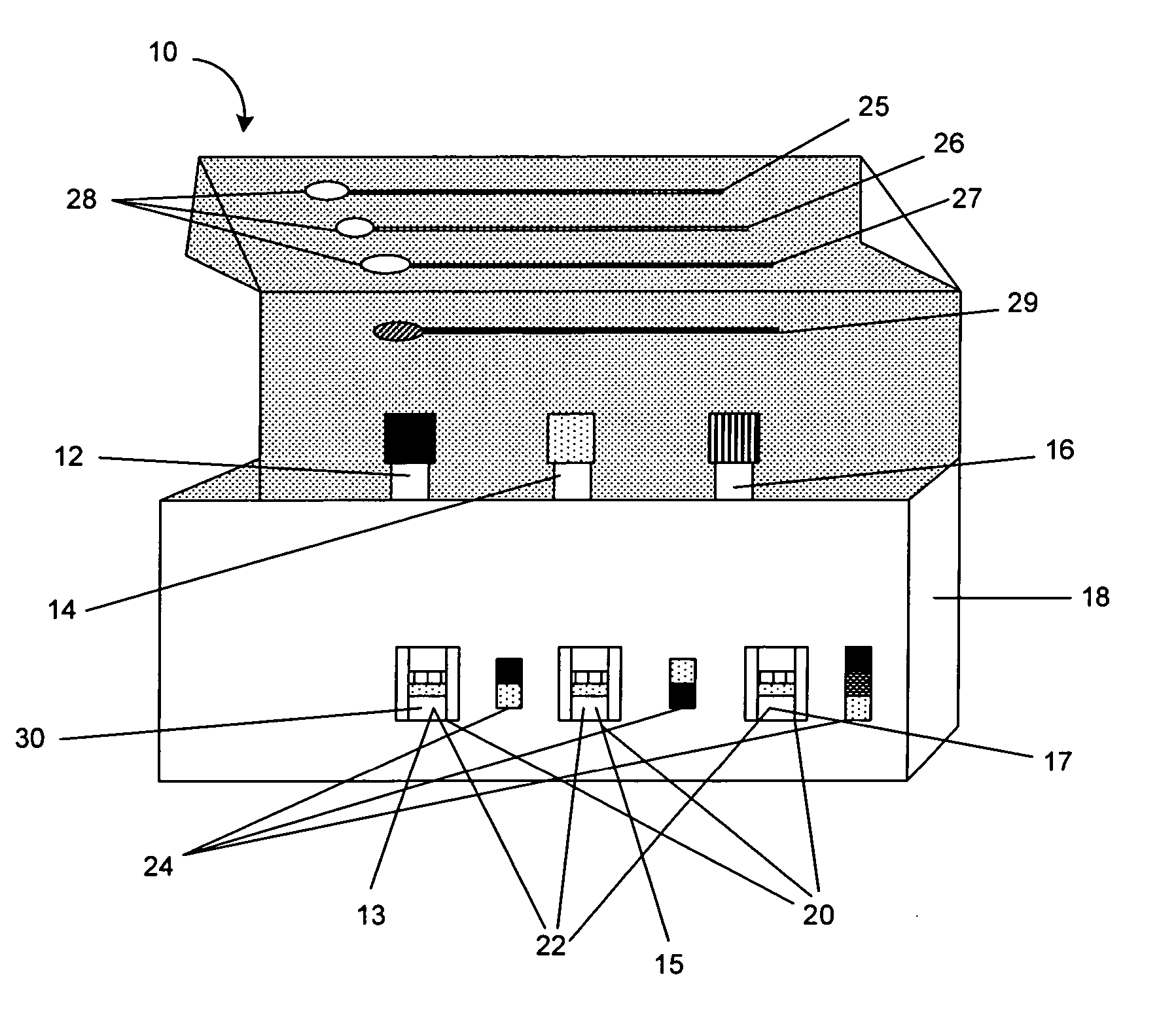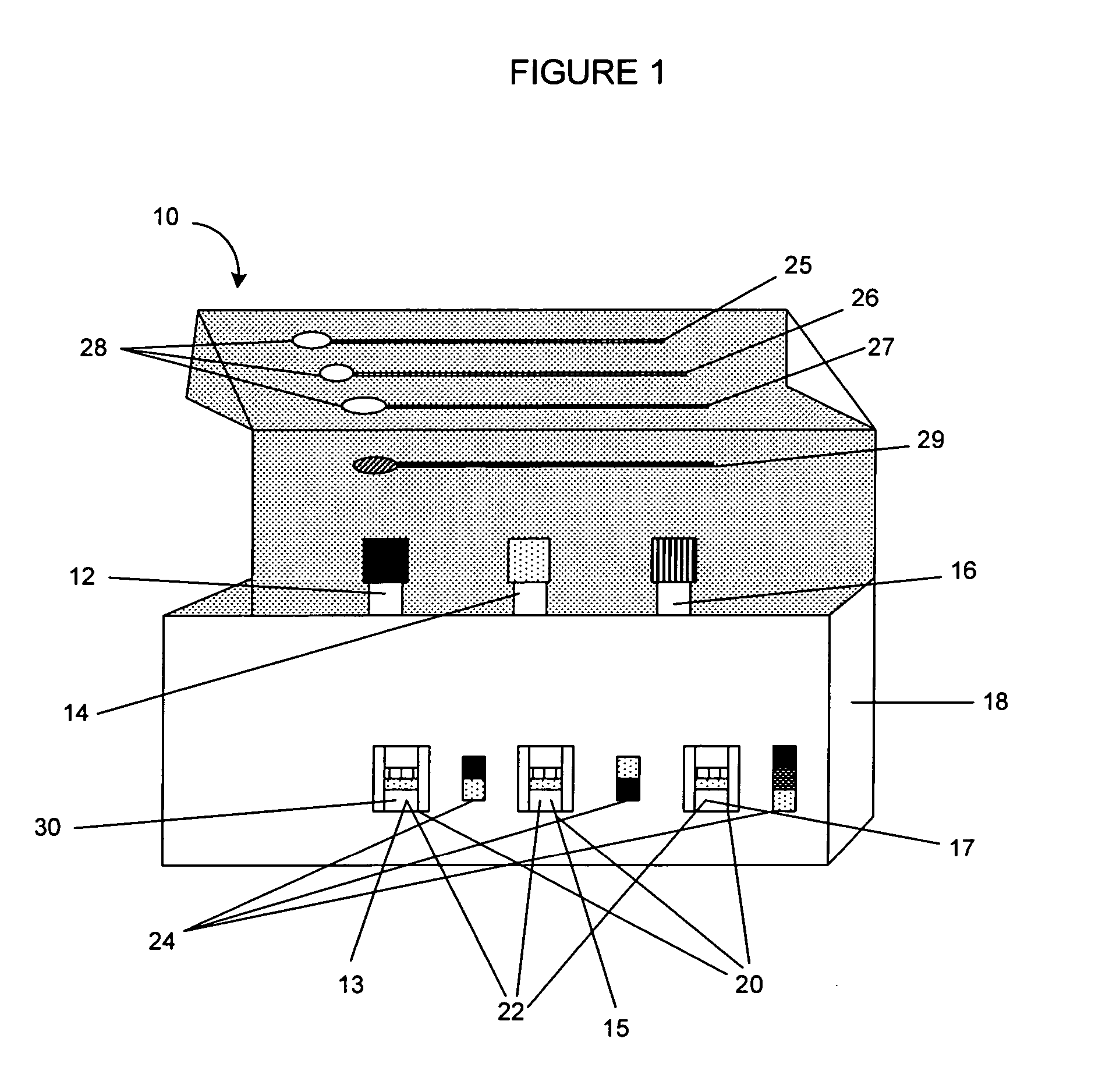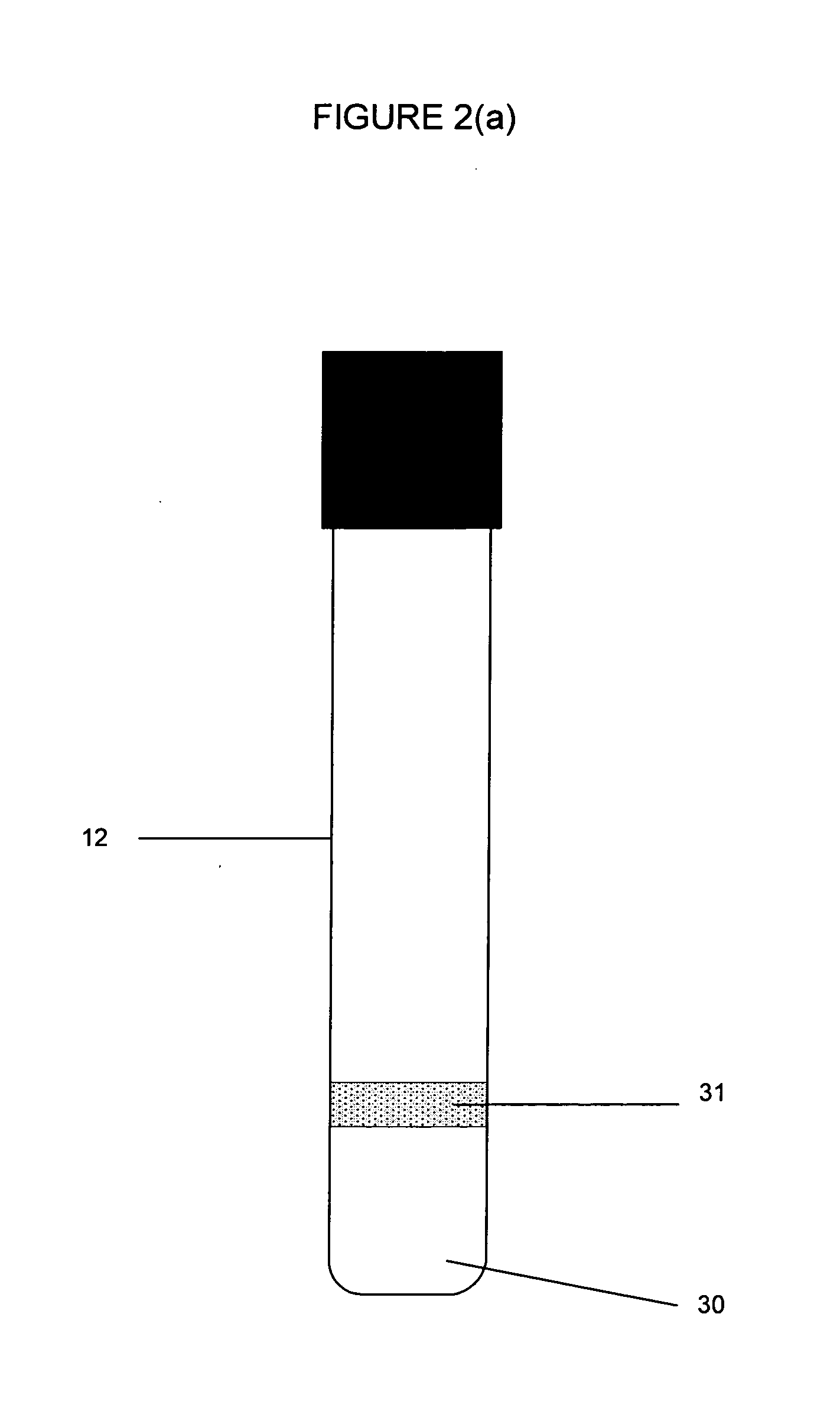Rapid assay, method and system for detecting biowarfare agents
a biowarfare agent and assay technology, applied in chemical methods analysis, material testing goods, withdrawal sample devices, etc., can solve the problems of affecting the accuracy of biowarfare agents, etc., and achieves the ability to screen for multiples, false positives, false negatives,
- Summary
- Abstract
- Description
- Claims
- Application Information
AI Technical Summary
Benefits of technology
Problems solved by technology
Method used
Image
Examples
example 1
Laboratory Testing of Bio-Screening Kit with Bacteria
[0077] This example illustrates testing one embodiment of the bio-screening kit, using E. coli bacterial dilutions in a laboratory setting, to determine its ability to detect biomaterial.
[0078] BacStationary culture of DH5α (an E. coli strain) growing in LB broth (0.65 mg protein / ml; 1.51×109 cells / ml) were tested. Cell count was determined from the average of two independent counts using a hemocytometer. All work was done at room temperature on the bench.
[0079] Different dilutions of cells were prepared with PBS (phosphate buffered saline, K.D. Medical). Cell dilutions were collected in 1.6 ml microfuge tubes and spun down at 5000 rpm for 4 minutes. The supernatant was removed, and pellets were resuspended directly in 250 μl Reagent A (equivalent to biuret kit test) with or without 1% SDS added. A protein detection swab was added and the tube examined for color change after 1 minute. Cells were not washed prior to this protein...
example 2
Laboratory Testing of Bio-Screening Kit for Triaging of Mundane Substances
[0081] This example illustrates testing one embodiment of the bio-screening kit using a wide selection of mundane, household and laboratory substances.
[0082] To further characterize the bio-identification / screening kit as a triaging device, a battery of common household and laboratory substances was assembled for testing. Each substance was tested for the presence of protein and for pH using a swab format test. The protein swab saturated with Cu2+ containing BCA Protein Assay Reagent B was contacted with the indicated substance, and then the swab was inserted in to a PROTEIN TUBE containing 0.25 ml of BCA (BCA Protein Assay Reagent A). Simultaneously, the pH of the liquid was tested using the pH swab. After a one minute incubation at room temperature, the color of the solutions in the tubes was compared to standard color codes to interpret the results. Results are shown in Table 1.
TABLE 1SubstancePositive(...
example 3
[0084] This example illustrates several tests of an embodiment of the bio-screening kit, used in real field conditions rather than laboratory situations, in order to test the robustness of the system. The reported results are from actual 911 emergency calls.
[0085] Kits were provided to emergency response units in the Washington, D.C., area. In addition to the test components, each kit contained instructions essentially as shown in FIG. 8. It is believed that field tests were carried out in accordance with those instructions.
[0086] Samples of the suspicious materials were first collected on two swabs. Each swab was immersed in a solution that produces a color change only if the agent being tested for is present. Failure to produce a color change in the protein (green cap) tube indicates that the sample does not contain biological material, suggesting the material is most likely safe. A sample that turns solution in the pH tube (white cap) red or blue is not likely to co...
PUM
 Login to View More
Login to View More Abstract
Description
Claims
Application Information
 Login to View More
Login to View More - R&D
- Intellectual Property
- Life Sciences
- Materials
- Tech Scout
- Unparalleled Data Quality
- Higher Quality Content
- 60% Fewer Hallucinations
Browse by: Latest US Patents, China's latest patents, Technical Efficacy Thesaurus, Application Domain, Technology Topic, Popular Technical Reports.
© 2025 PatSnap. All rights reserved.Legal|Privacy policy|Modern Slavery Act Transparency Statement|Sitemap|About US| Contact US: help@patsnap.com



